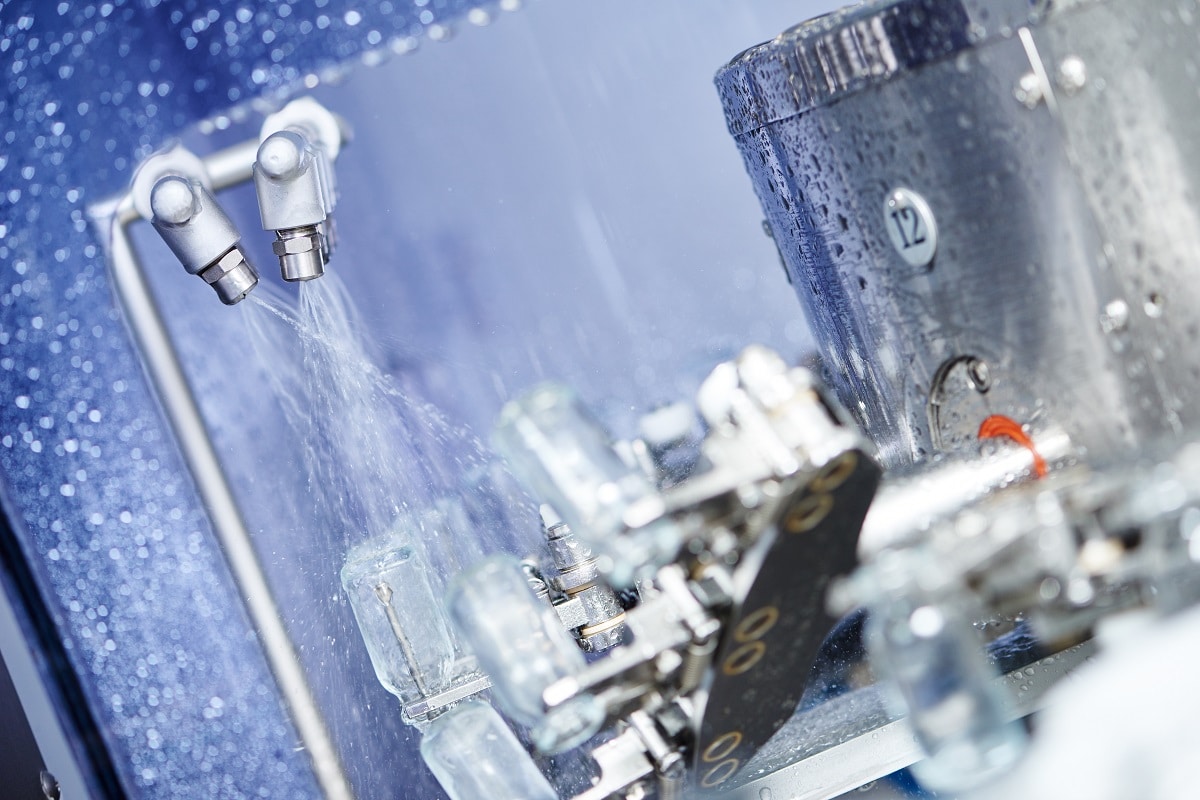Overview
No matter where you or many other Americans work, you are probably being exposed to solvents. Solvents are used in various capacities, like in industrial, commercial, and non-residential setting, and when they become obsolete or unable to be used for their intended purpose, they will most likely become hazardous. It is up to you and other solvent users to determine if your solvent is hazardous or not and how to safely dispose or recycle your solvents.
This guide is to inform solvent users and disposers of the Resource Conservation and Recovery Act (RCRA) hazardous waste regulations, enable them to make the correct hazardous waste determinations for their solvents, and assist them in either reducing solvent usage or choosing less-hazardous solvents.
Solvent users who use this guide will:
- Be knowledgable about the RCRA hazardous waste rules
- Grow understanding of the RCRA hazardous waste regulations associated with solvents
- Learn about RCRA waste classification
- Obtain answers for frequently asked questions about solvents and RCRA
Although this guide will provide you with a brief overview, most states have the authority to maintain its own hazardous waste generator programs. Thus, some state’s may have regulations in place of federal regulations. Even though many state regulations are based on federal regulations, some states may have developed more strict or broader regulations. To see your state’s regulations, contact your state’s environmental regulatory agency or department or go to the EPA’s State Programs Web page.
If you ever have any concerns about hazardous solvent disposal or solvent classification, refer to your state’s environmental regulatory agency or EPA regional office.
Defining a Solvent
In most cases, solvents are liquids that are composed of either a single chemical or a mixture of chemicals which are used to dissolve a substance or material. This usage enables solvents to be utilized as cleaning agents, or in chemical manufacturing, or as ingredients in other products.
Common uses of solvents include:
- Industrial cleaning and degreasing;
- Dry cleaning;
- Paint thinning and coating;
- Fabric scouring;
- Auto and airplane manufacturing and maintenance;
- Many other uses
Why is it critical to understand what solvents are?
As previously mentioned, a majority of of commodity solvents may become hazardous after being spent or becoming obsolete. Furthermore, when many solvents are disposed of while not being used, then they are considered hazardous. Per RCRA regulations, you must determine whether or not your spent solvents are hazardous wastes and subject to hazardous waste requirements. In the case solvents are hazardous wastes, then they must be maintained and disposed or recycled properly. If these regulations aren’t followed, then you yourself, your fellow workers, and the population around you will be at risk. Also, they may be legal consequences for not following RCRA regulations.
Are there solvents at your workplace?
Due to the various uses of solvents, there may be some at your workplace. If you’re uncertain of whether or not solvents are being used in your facility, then contact management or health and safety personnel for information. Your employer may be required to issue you information regarding hazardous chemicals in order to comply with the Occupational Safety and Health Administration’s (OSHA) Hazard Communications regulations at Title 29 of the CFR in section 1910.1200.
Industries that commonly utilize solvents
[av_one_half first av_uid=’av-168j5qc’]
- Adhesives manufacturing
- Ink formulation
- Autobody repair
- Metal fabrication
- Automotive manufacturing
- Metal finishing and plating
- Circuit board manufacturing
- Paint manufacturing and use
- Defense Personal care product manufacturing
- Dry cleaning
[/av_one_half]
[av_one_half av_uid=’av-27datg’]
- Pharmaceutical manufacturing
- Electronics manufacturing
- Printing
- Electroplating
- Pulp and paper manufacturing
- Fiber-reinforced plastic manufacturing
- Rubber manufacturing
- Film developing
- Semiconductor manufacturing
- Furniture manufacturing
- Wood staining and varnishing
[/av_one_half]
When are solvents classified as solid waste?
Per RCRA hazardous waste regulations, solvents must first be determined to be a solid waste before it can be considered classified as a hazardous waste. RCRA states that the term “solid waste” includes solid materials, liquids, and contained gases. Solvents are solid wastes in the event they are discarded or recycled in a certain manner, such as when burned for energy recovery.
Circumstances of Solid Waste
- “Spent” – contaminated through use and no longer able to be used for their intended purpose without first being regenerated, reclaimed, or otherwise reprocessed
- Expired and can no longer be used
- Off-specification commercial chemical products and can no longer be used
- Unwanted and/or unused and destined for disposal
- Residues, contaminated soil or water, or other debris resulting from cleanup of a solvent spill
If you are uncertain if the solvents in your workplace are solid wastes, you can use EPA’s Definition of Solid Waste Decision Tool v2, which will guide you through a series of decisions to help you determine whether a material meets the definition of a solid waste.
Determining if a Solid Waste is Hazardous or not
See the EPA’s document, starting on page seven, to view the criterions for determining hazardous waste.
Replacing Hazardous Solvents with Ecolink
If you desire to replace your potentially harmful solvents, contact us today! We offer a wide array of solvents to meet your needs. Call us today at 800-563-1306!















